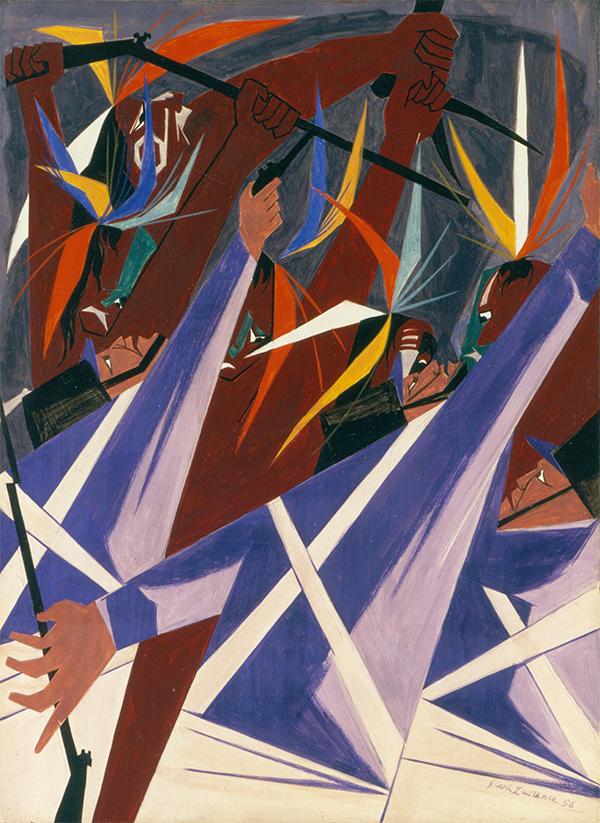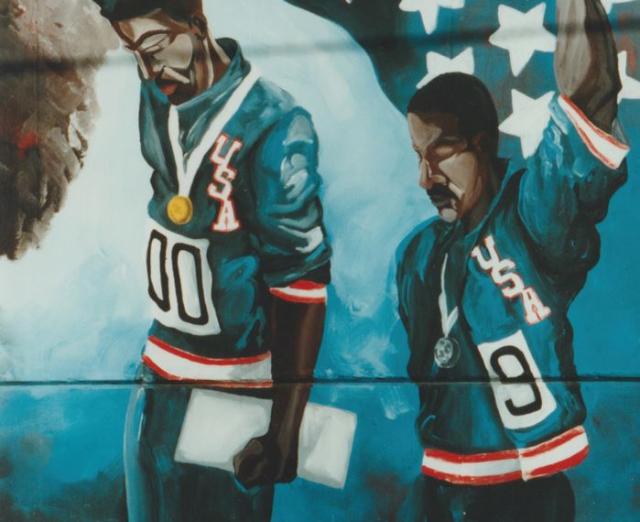Deconstructing Lawrence's Struggle Series: Panel 21
Education & Community Engagement, Exhibitions & Events
This spring, former Phillips curator Beth Turner taught an undergraduate practicum at the University of Virginia focusing on Jacob Lawrence’s Struggle series. In this multi-part blog series, responses from Turner’s students in reference to individual works from the series will be posted each week.

Jacob Lawrence, Struggle ⦠From the History of the American People, no. 21: Listen, Father! The Americans have not yet defeated us by land; neither are we sure they have done so by waterâwe therefore wish to remain here and fight our enemy . . .âTecumseh to the British, Tippecanoe, 1811 (Battle of Tippecanoe, Nov. 7, 1811), 1956. Egg tempera on hardboard, 16 x 12 in. Private Collection of Harvey and Harvey-Ann Ross. © 2015 The Jacob and Gwendolyn Knight Lawrence Foundation, Seattle / Artists Rights Society (ARS), New York
Listen, Father! The Americans have not yet defeated us by land; neither are we sure they have done so by water—we therefore wish to remain here and fight our enemy … –Tecumseh to the British, Teppecanoe, 1811
In this image, Jacob Lawrence illustrates one of many battle scenes between Native Americans, who allied with the British, and American soldiers before and during the War of 1812. The accompanying text is an excerpt from a speech given by Tecumseh to his British ally Major General Henry Proctor. Tecumseh was demanding in his convictions that their united forces should continue to fight instead of withdrawing as Proctor intended to do. Lawrence misrepresented this quote as being spoken at the Battle of Tippecanoe in 1811, and it is unclear whether this decision was made on purpose or not. Leading up to the Battle of Tippecanoe, Tecumseh worked towards uniting the various native tribes into a collective group that could make decisions about the ownership of the remaining native lands.
The message is clear in both instances that Tecumseh sought to unite his fellow Native Americans and fight for their right to own western land. The scene is violent, depicted through the harsh upward stretching lines, arm, and weapons. The chaos of the event is dramatized by lack of back drop and landscape, suggesting that the masses were struggling and intertwined so closely that nothing else was visible. The color pallete is dark, with the Native Americans remaining more vibrant, perhaps to represent the passion of the protagonist.
Lawrence wants us to not only see but also feel the persistence of the Native American.
Andrea Goldstein




